ΟΙ ΚΑΡΔΙΟΠΡΟΣΤΑΤΕΥΤΙΚΕΣ ΙΔΙΟΤΗΤΕΣ ΤΟΥ ΠΟΛΥΦΑΙΝΟΛΙΚΟΥ ΕΛΑΙΟΛΑΔΟΥ
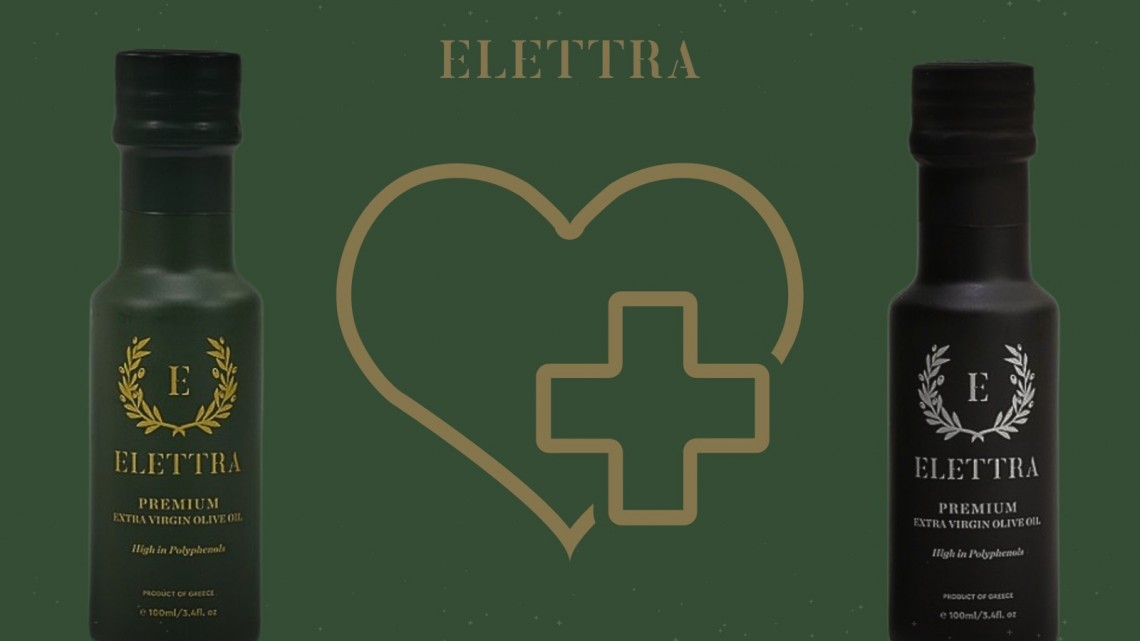
Μανώλης Μάκαρης
Καρδιολόγος, Διευθυντής Καρδιολογικής Κλινικής Γενικού Νοσοκομείου Μεσσηνίας, MSc Nanomedicine
Οι καρδιοπροστατευτικές ιδιότητες του πολυφαινολικού ελαιολάδου
Τα καρδιαγγειακά νοσήματα αποτελούν την κυριότερη αιτία θανάτου στον αναπτυγμένο κόσμο. Ειδικά στην Ελλάδα έχει παρατηρηθεί αύξηση των καρδιαγγειακών νοσημάτων πιθανώς λόγω της αλλαγής των διατροφικών συνηθειών και της υιοθέτησης του δυτικού τρόπου διατροφής. Κάτι τέτοιο μάλιστα διαφαίνεται και από την κατάταξη της Ελλάδας στις μετρίου κινδύνου για καρδιαγγειακά επεισόδια χώρες σύμφωνα με την ευρωπαϊκή καρδιολογική εταιρεία παρόλο που μέχρι πρόσφατα βρισκόταν στην κατηγορία χαμηλού κινδύνου.
Υπάρχουν πολλές μελέτες που αποδεικνύουν την καρδιοπροστατευτική δράση της μεσογειακής διατροφής. Μελέτη ορόσημο για τα καρδιαγγειακά νοσήματα και το ελαιόλαδο θεωρείται η μελέτη PREDIMED. Η συγκεκριμένη πολυκεντρική μελέτη δημοσιεύτηκε το 2014 και περιλάμβανε 7447 συμμετέχοντες εθελοντές με υψηλό καρδιαγγειακό κίνδυνο που υποβλήθηκαν σε τρεις διαφορετικές δίαιτες για 4,8 έτη. Η πρώτη δίαιτα ήταν η μεσογειακή με την προσθήκη τεσσάρων κουταλιών της σούπας εξαιρετικού παρθένου ελαιόλαδου ημερησίως. Η δεύτερη δίαιτα ήταν επίσης μεσογειακή με 30 γραμμάρια ξηρών καρπών ημερησίως και η τρίτη δίαιτα ήταν μια δίαιτα χαμηλή σε λιπαρά.
Αυτή η μελέτη έδειξε ότι η μεσογειακή διατροφή με εξαιρετικό παρθένο ελαιόλαδο προσφέρει καρδιαγγειακή προστασία αφού μείωσε τον συνδυασμένο κίνδυνο καρδιακής προσβολής, αγγειακού εγκεφαλικού επεισοδίου ή θανάτου από καρδιαγγειακά κατά 31% σε σχέση με την υπολιπιδαιμική δίαιτα.
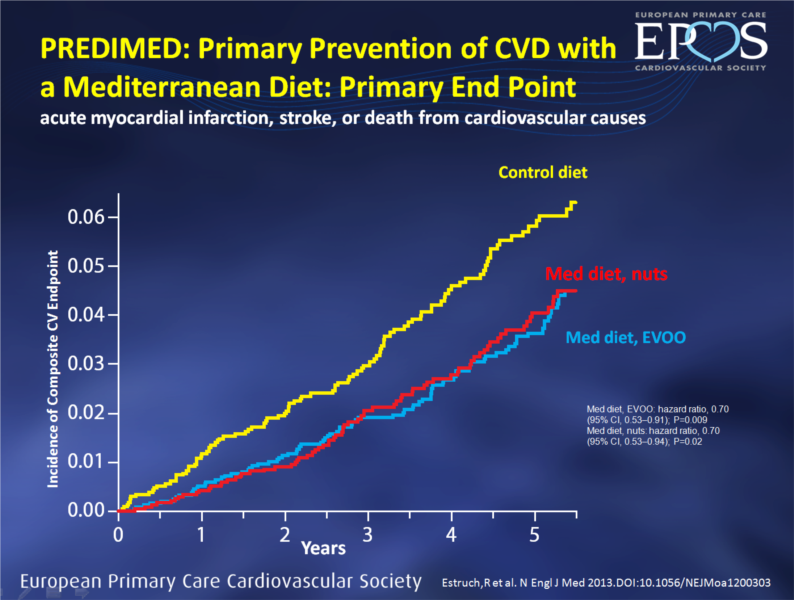
Συμπερασματικά η μελέτη PREDIMED έχει ανοίξει ένα νέο δρόμο και μάλιστα έδειξε την αξία της μεσογειακής διατροφής και του εξαιρετικά παρθένου ελαιολάδου για την πρόληψη των καρδιαγγειακών παθήσεων αλλά και την υπεροχή, όπως είπαμε, της μεσογειακής διατροφής με εξαιρετικά παρθένο ελαιόλαδο σε σχέση με τη δίαιτα χαμηλών λιπαρών.
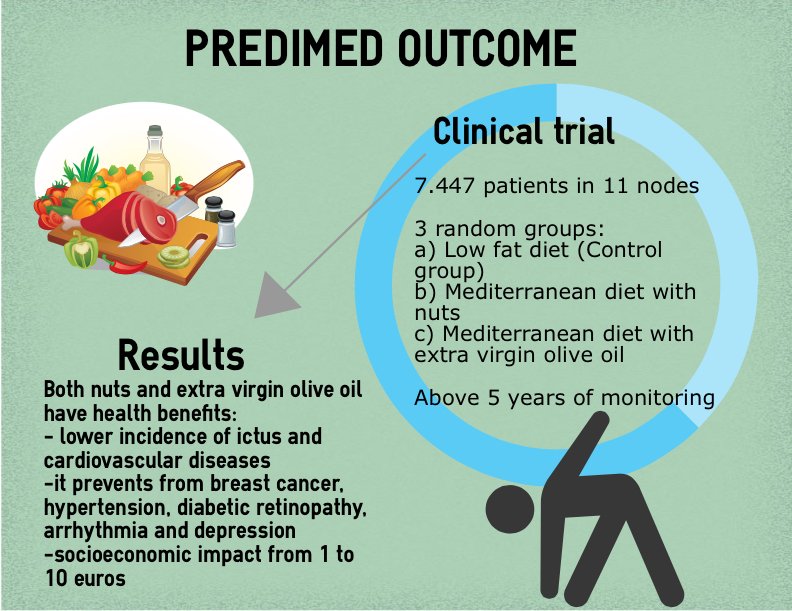
Παράλληλα άλλη μελέτη πρωτογενούς πρόληψης αποδεικνύει ότι η μακροχρόνια λήψη εξαιρετικά παρθένου ελαιολάδου στη διατροφή οδηγεί σε μείωση 15% στα καρδιαγγειακά νοσήματα και μείωση της συνολικής καρδιαγγειακής θνησιμότητας ενώ η αντικατάσταση στη διατροφή των ζωικών λιπών, του βουτύρου, της μαργαρίνης και της μαγιονέζας με εξαιρετικά παρθένο ελαιόλαδο προσφέρει 5 έως 7% χαμηλότερο κίνδυνο για στεφανιαία νόσο και καρδιαγγειακή νοσηρότητα.
Ανάλογες μελέτες παρέμβασης με την υιοθέτηση της μεσογειακής διατροφής με προσθήκη ελαιολάδου υπάρχουν και για την δευτερογενή πρόληψη των καρδιαγγειακών νοσημάτων σε ασθενείς με στεφανιαία νόσο. Μια τέτοια μελέτη είναι η CORDIOPREV. Στην συγκεκριμένη μελέτη αποδείχτηκε ότι η μεσογειακή δίαιτα εμπλουτισμένη με εξαιρετικό παρθένο ελαιόλαδο συγκρινόμενη με τη δίαιτα χαμηλών λιπαρών οδηγεί σε μείωση της εξέλιξης της αθηρωμάτωσης όπως διαπιστώνεται υπερηχοτομογραφικώς στην κοινή καρωτίδα (μείωση του πάχους του έσω- μέσου χιτώνα και του ύψους της αθηρωματικής πλάκας).
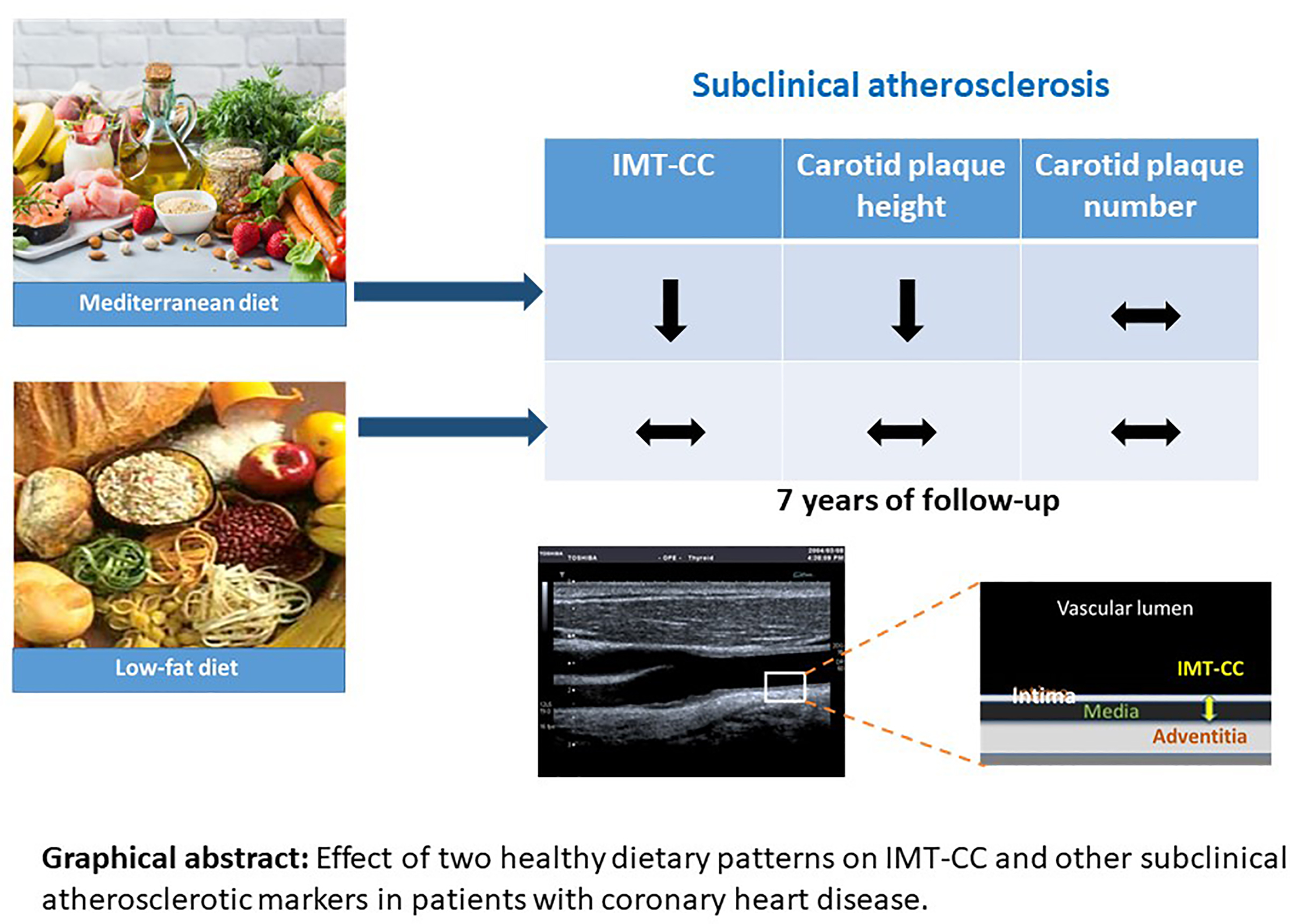
Βασικό συστατικό στοιχείο της μεσογειακής διατροφής είναι το ελαιόλαδο. Υπάρχουν διαφορετικές κατηγορίες ελαιολάδου ανάλογα με την οξύτητα αλλά και την παρουσία ή την απουσία των πολυφαινολών. Η σύνθεση του εξαιρετικού παρθένου ελαιολάδου είναι 98% σαπωνοποιημένο κλάσμα (μονοακόρεστα και πολυακόρεστα λιπαρά οξέα) και 2% ασαπωνοποίητο κλάσμα. Στο σαπωνοποιημένο κλάσμα κυριαρχεί το ελαϊκό οξύ ενώ στο ασαπωνοποίητο κλάσμα περιλαμβάνονται οι πολυφαινόλες.
Οι ευεργετικές ιδιότητες του ελαιολάδου ήταν γνωστές από την αρχαιότητα. Μάλιστα ο Διοσκουρίδης συνιστούσε την λήψη λαδιού από άγουρες ελιές για καλύτερα αποτελέσματα στην υγεία και καλύτερη αντοχή στον χρόνο. Οι υγειοπροστευτικές ιδιότητες του εξαιρετικού παρθένου ελαιολάδου (EVOO) οφείλονται βασικά σε αυτά τα δύο συστατικά για τα οποία έχει υπάρξει επίσημος ισχυρισμός υγείας από την Eυρωπαική Aρχή για την Ασφάλεια των Τροφίμων (EFSA).
Για τις πολυφαινόλες του ελαιολάδου η EFSA αποδέχεται τα οφέλη της ημερήσιας πρόσληψης ελαιολάδου πλούσιου σε πολυφαινόλες που αντιστοιχεί σε 5mg υδροξυτυροσόλης ή παράγωγών του ανά 20g ελαιολάδου, για την πρόληψη της οξείδωσης των σωματιδίων της χοληστερόλης στον γενικό πληθυσμό.
Παράλληλα για το ελαϊκό οξύ έχει υπάρξει αντίστοιχος ισχυρισμός υγείας που προϋποθέτει την αντικατάσταση των κορεσμένων λιπαρών με ακόρεστα λιπαρά όπως το ελαϊκό οξύ. Το FDA έχει εγκρίνει την αναγραφή στις ετικέτες λαδιών με ελαϊκό οξύ (oleic acid) >70% (κυρίως το ελαιόλαδο) ότι η ημερήσια κατανάλωση 20g (1.5 κουταλιά της σούπας) από αυτό, πιθανώς μειώνει τα εμφράγματα. Για να μην αυξηθεί το σωματικό βάρος, αυτή η ποσότητα πρέπει να αντικαταστήσει ίση ποσότητα κεκορεσμένων λιπών.
Έχουν προταθεί διάφοροι μηχανισμοί μέσω των οποίων το εξαιρετικό παρθένο ελαιόλαδο οδηγεί στη μείωση των καρδιαγγειακών νοσημάτων όπως η βελτίωση της λειτουργικότητας του ενδοθηλίου, η μείωση της φλεγμονής, η μείωση της συσσώρευσης αιμοπεταλίων, η μείωση του οξειδωτικού στρες, η βελτίωση του μεταβολισμού των λιπιδίων και η μείωση των παραγόντων πήξης.
Η καρδιαγγειακή προστασία των πολυφαινολών συνδέεται στενά με την αντιοξειδωτική τους δράση. Το οξειδωτικό στρες προκαλείται από την ανισορροπία μεταξύ των ενδοκυτταρικών επιπέδων των ενεργών ριζών οξυγόνου (ROS) και των αντιοξειδωτικών και έχει προταθεί ως ο κύριος αιτιοπαθογενετικός μηχανισμός της αθηρωμάτωσης και των καρδιαγγειακών παθήσεων.
Οι τέσσερις πιο άφθονες πολυφαινόλες στο EVOO στην ελληνική επικράτεια είναι η ελαιοκανθάλη, η ελαιασίνη, τα άγλυκα του λιγκστροσίδη και της ελευρωπαΐνης Αυτές οι πολυφαινόλες παρουσιάζουν σημαντικές in vitro βιολογικές δράσεις, συμμετέχοντας σε διάφορες κυτταρικές και βιοχημικές διεργασίες. Έχει αναπτυχθεί μια αξιόπιστη μέθοδο μέτρησης των ουσιών του κανονισμού που παρέχει τα αναγκαία πιστοποιητικά για την υποστήριξη του ισχυρισμού υγείας.
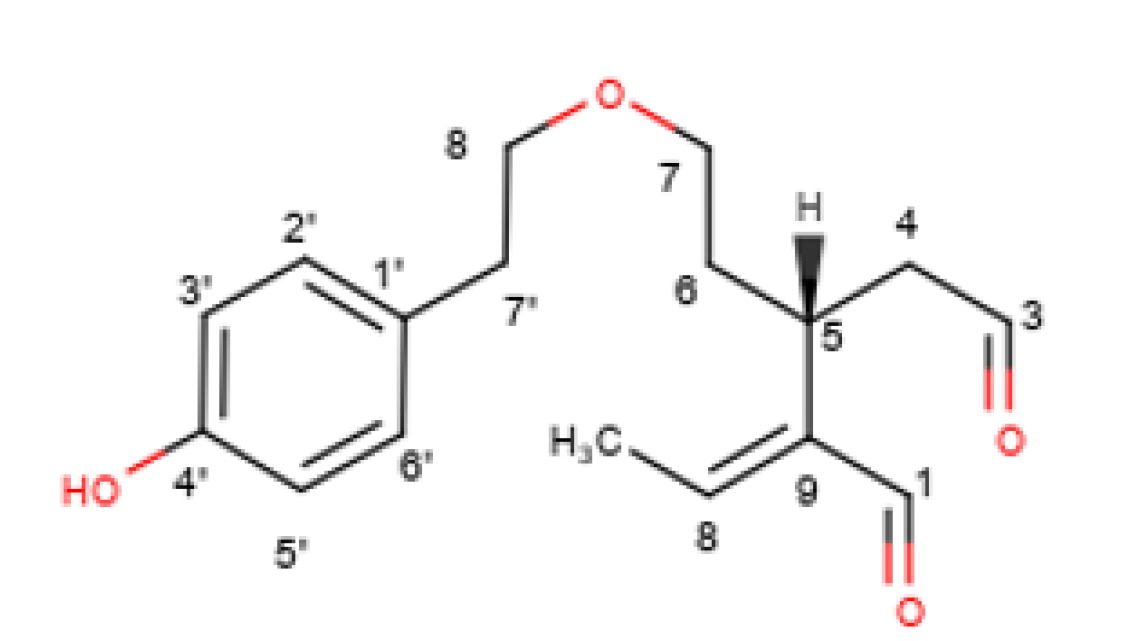
Η ελαιοκανθάλη, η κυριότερη πολυφαινόλη των ελληνικών EVOO, είναι υπεύθυνη για το αίσθημα καψίματος στο λαιμό κατά την βρώση και είναι αναστολέας της κυκλοοξυγενάσης 1 και 2, έχοντας αντιφλεγμονώδη δράση ανάλογη των μη στεροειδών αντιφλεγμονωδών φαρμάκων όπως η ιβουπροφαίνη. Παράλληλα μπορεί να επιβραδύνει τη νόσο Αλτσχάιμερ σε πειραματόζωα. Η ελαιασίνη είναι αναστολέας της 5-λιποξυγενάσης, έχει ισχυρή αντιοξειδωτική και αντιφλεγμονώδη δράση και πιθανώς βοηθά κατά της αθηροσκλήρωσης και της γήρανσης. Το άγλυκο του λιγκστροσίδη έχει αντιφλεγμονώδη δράση, ενώ το άγλυκο της ελαιοευρωπαΐνης πιθανώς να έχει αντιμεταστατική και αντιοξειδωτική δράση. Η υδροξυτυροσόλη αναστέλλει την αθηροσκλήρωση στα πρώιμα στάδια (αναστολή της οξείδωσης της LDL και της έκφρασης προφλεμονωδών γονιδίων).
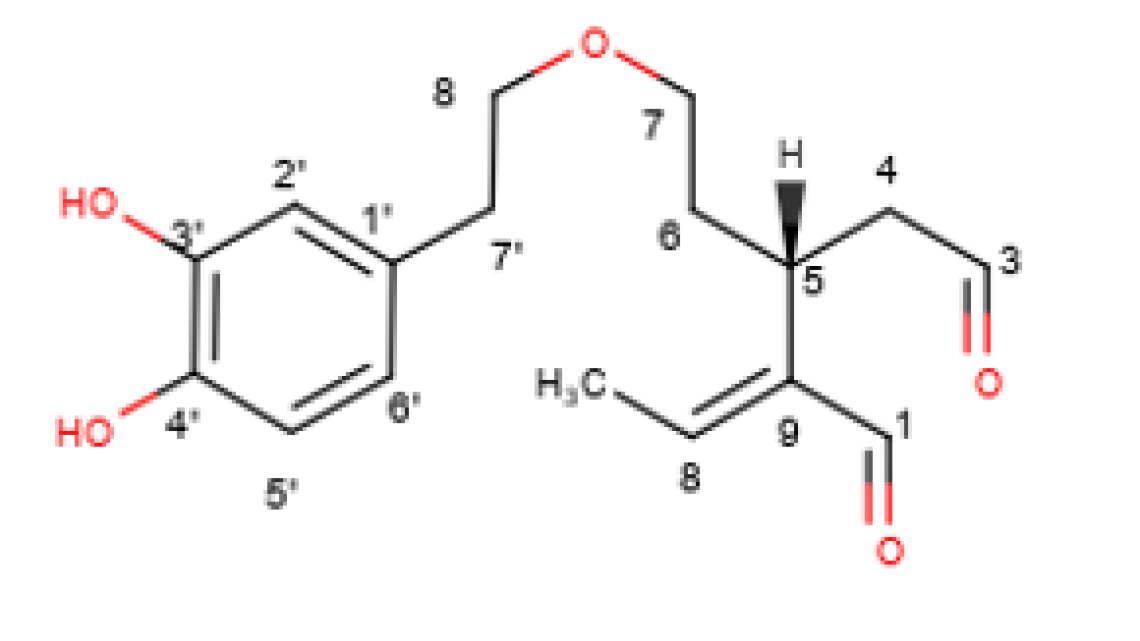
Λόγω της σπουδαιότητας της η μεσογειακή διατροφή καταχωρήθηκε στον αντιπροσωπευτικό κατάλογο της άυλης πολιτιστικής κληρονομιάς της ανθρωπότητας της UNESCO το 2013 μετά από την υποβολή φακέλου από την Κύπρο, την Κροατία, την Ισπανία, την Ελλάδα, την Ιταλία, το Μαρόκο και την Πορτογαλία με τις αντίστοιχες εμβληματικές κοινότητες, στην προκειμένη περίπτωση, από την Ελλάδα ήταν η Κορώνη Μεσσηνίας.

Σε κλινική μελέτη της Καρδιολογικής Κλινικής του Νοσοκομείου Καλαμάτας σε συνεργασία με τον Προκόπη Μαγιάτη αν. καθηγητή Φαρμακευτικής Σχολής του Παν/μίου Αθηνών θέσαμε ως στόχο να διερευνήσουμε την επίδραση του πολυφαινολικού ελαιολάδου στο καρδιαγγειακό σύστημα, στο λιπιδαιμικό προφίλ και στην αγγειακή ενδοθηλιακή λειτουργία ασθενών με υπερλιπιδαιμία και συγκρίναμε τα σκευάσματα με διαφορετική περιεκτικότητα σε πολυφαινόλες. Συγκεκριμένα πήραμε 60 εθελοντές που είχαν υπερλιπιδαιμία άνω των 18 ετών και τους χωρίσαμε σε δύο κατηγορίες, η μία κατηγορία έλαβε για ένα μήνα 8mL ημερησίως από το ελαιόλαδο υψηλής περιεκτικότητας σε πολυφαινόλες (περίπου 1000mg πολυφαινολών ανά kg) και η ομάδα Β που έλαβε 20 mL πολυφαινολικό ελαιόλαδο περιεκτικότητας 400mg πολυφαινολών ανά kg.
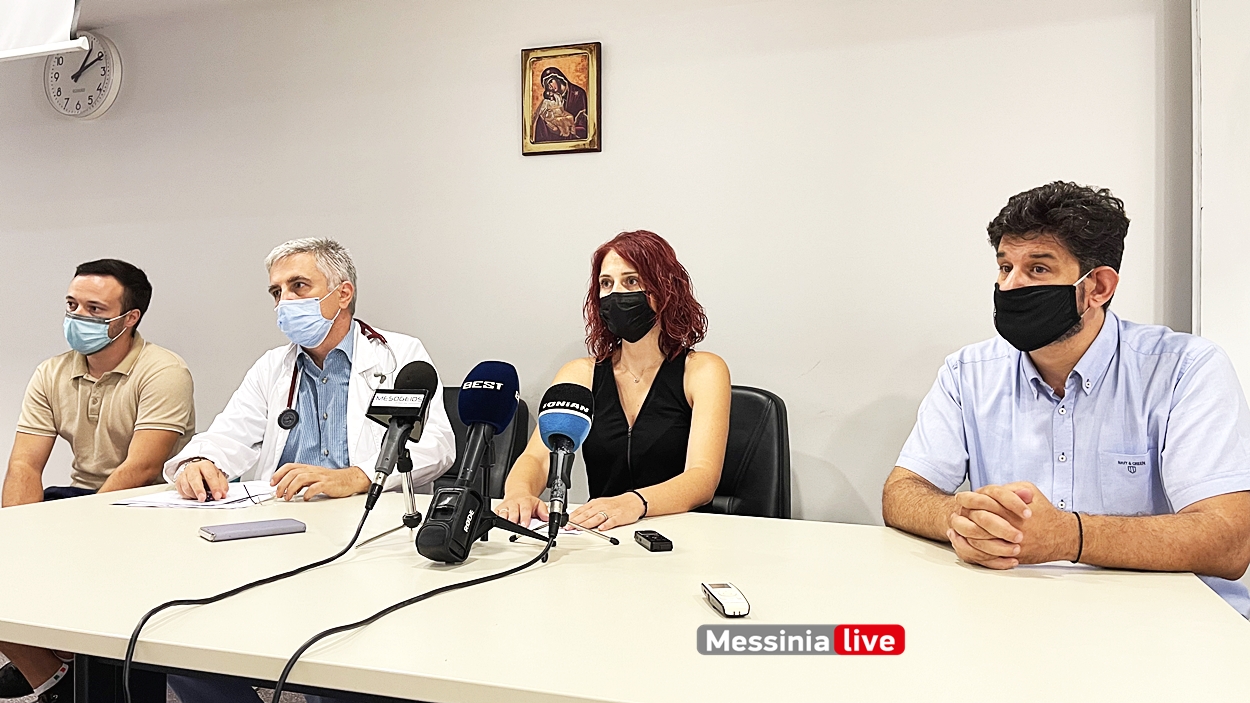
Σε μια σειρά από παραμέτρους πριν και μετά την περίοδο του μηνός είχαμε τα ακόλουθα:
• βελτίωση της διαστολικής αρτηριακής πίεσης,
• βελτίωση του λιπιδαιμικού προφίλ στις βιοχημικές εξετάσεις,
• καλύτερη διαστολική λειτουργία της αριστερής κοιλίας όσον αφορά τη διαμιτροειδική ροή και την πίεση πλήρωσης της αριστερής κοιλίας στο υπερηχοκαρδιογράφημα,
• βελτίωση της μέγιστης απόδοσης άσκησης με μεγαλύτερη διάρκεια κόπωσης, μέχρι τη μέγιστη κόπωση
• χαμηλότερο καρδιακό ρυθμό στο ίδιο στάδιο κόπωσης στη δοκιμασία κόπωσης.
• Είδαμε επίσης βελτίωση στους δείκτες αγγειακής ενδοθηλιακής λειτουργίας που σημαίνει καλύτερη απορρόφηση οξυγόνου στην μέτρηση της ροής στη βραχιόνια αρτηρία (FMD).

Επίσης, η σύγκριση μεταξύ των δύο ομάδων έδειξε ξεκάθαρα ότι το ελαιόλαδο υψηλής περιεκτικότητας πολυφαινολών βελτίωσε περαιτέρω ορισμένους από αυτούς τους δείκτες σε σύγκριση με το ελαιόλαδο χαμηλότερης περιεκτικότητας σε πολυφαινόλες.
Συμπερασματικά, το πολυφαινολικό εξαιρετικό παρθένο ελαιόλαδο φαίνεται να έχει ευεργετική επίδραση στο λιπιδαιμικό προφίλ, την αγγειακή ενδοθηλιακή λειτουργία και την καρδιακή λειτουργία σε υπερλιπιδαιμικούς ασθενείς. Το ελαιόλαδο με υψηλότερη ποσότητα πολυφαινολών φαίνεται να έχει ακόμα καλύτερο αποτέλεσμα.
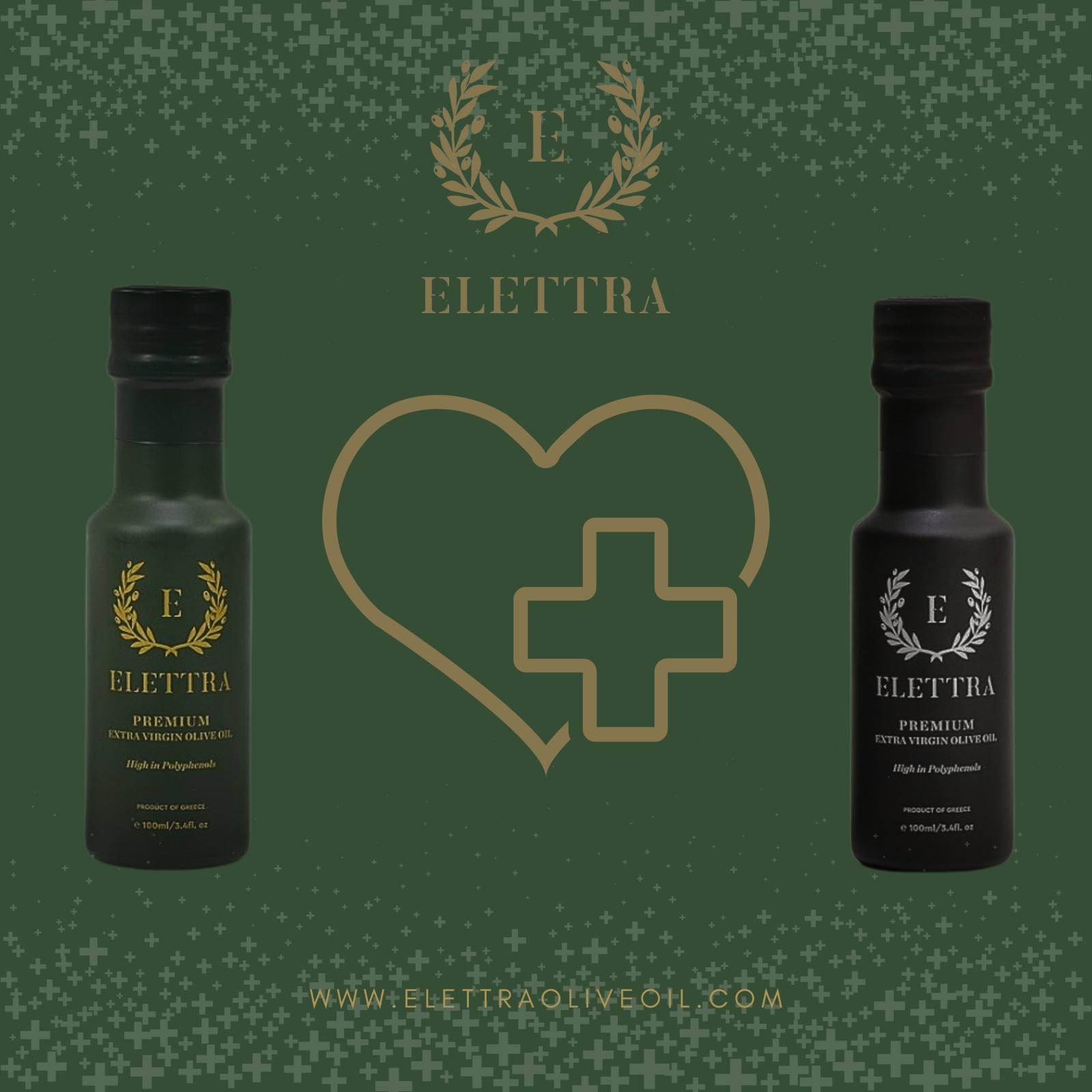
Το εξαιρετικό παρθένο ελαιόλαδο αποτελεί τη βάση της μεσογειακής διατροφής και έχει αποδειχθεί η σημαντική του συμβολή στις καρδιοπροστατευτικές της ιδιότητες. Ειδικά η κατηγορία των πολυφαινολικού ελαιολάδου μπορεί να αποτελέσει τη ναυαρχίδα της μεσογειακής διατροφής.
Το άρθρο δημοσιεύτηκε στο επιστημονικό περιοδικό ΑΘΗΡΩΜΑ της Ελληνικής Εταιρείας Λιπιδιολογίας και Αθηροσκλήρωσης και αγγειακής νόσου.
ΒΙΒΛΙΟΓΡΑΦΙΑ
1. SCORE2 working group and ESC Cardiovascular risk collaboration, SCORE2 risk prediction algorithms: new models to estimate 10-year risk of cardiovascular disease in Europe, European Heart Journal, Volume 42, Issue 25, 1 July 2021, Pages 2439–2454, https://doi.org/10.1093/eurheartj/ehab309
2. Guasch-Ferré, M, Li, Y, Willett, W. et al. Consumption of Olive Oil and Risk of Total and Cause-Specific Mortality Among U.S. Adults. J Am Coll Cardiol. 2022 Jan, 79 (2) 101–112. https://doi.org/10.1016/j.jacc.2021.10.041
3. Delgado-Lista J, Alcala-Diaz JF.at al. Long-term secondary prevention of cardiovascular disease with a Mediterranean diet and a low-fat diet (CORDIOPREV): a randomised controlled trial. Lancet. 2022 May 14;399(10338):1876-1885. doi: 10.1016/S0140-6736(22)00122-2. Epub 2022 May 4. PMID: 35525255.
4. Yubero-Serrano, Elena & Lopez-Moreno, Javier & Gomez-Delgado, Francisco & Lopez-Miranda, Jose. (2018). Extra virgin olive oil: More than a healthy fat. European Journal of Clinical Nutrition. 72. https://doi.org/10.1038/s41430-018-0304-x
5. Finicelli M, Squillaro T, Galderisi U, Peluso G. Polyphenols, the Healthy Brand of Olive Oil: Insights and Perspectives. Nutrients. 2021 Oct 27;13(11):3831. doi: 10.3390/nu13113831. PMID: 34836087; PMCID: PMC8624306.
6.Moss, J., Ramji, D. Nutraceutical therapies for atherosclerosis. Nat Rev Cardiol 13, 513–532 (2016). https://doi.org/10.1038/nrcardio.2016.103
